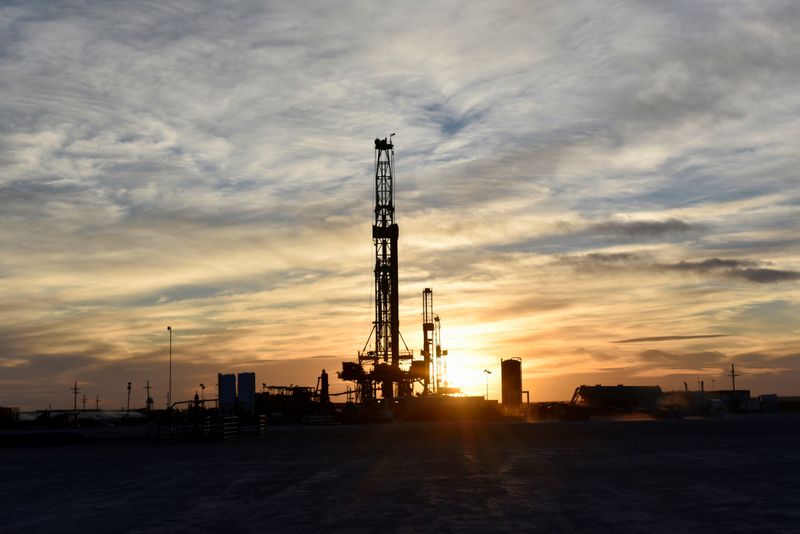TOKYO (Reuters) - Oil prices steadied early on Wednesday after sliding to their lowest in four years, sapped by fears for fuel demand and the global economy amid travel and social lockdowns triggered by the coronavirus epidemic in a number of countries around the world.
Brent crude (LCOc1) was up 8 cents, or 0.3%, at $28.81 a barrel by 0029 GMT, after falling earlier to $28.40, the lowest since early 2016. The international benchmark fell 4.3% on Tuesday.
U.S. crude (Clc1) was down 2 cents at $26.93 a barrel, after falling to as low as $26.20, also the lowest in four years. West Texas Intermediate fell 6% on Tuesday.
A fall in U.S. inventories of crude, gasoline and distillates, as reported by an industry group, provided some support to prices, but the demand outlook remains grim amid a price war among major producers.
"The demand prospect (is) looking even more dismal today as everyone rushes to revise demand growth lower," said Stephen Innes Global, chief markets strategist at AxiCorp.
In efforts to support economies, the world's richest nations prepared to unleash trillions of dollars of spending to lessen the fallout from the coronavirus outbreak, as well as imposing social restrictions not seen since World War Two.
Meanwhile, Virgin Australia became the latest airline to shut down its international network with the suspension of all international flights, while Prime Minister Scott Morrison warned that the situation could last six months or more.
Elsewhere, Iraq's oil minister pleaded for an emergency meeting between members of the Organization of the Petroleum Exporting Countries (OPEC) and non-OPEC producers to discuss immediate action to help balance the oil market.
A price war has broken out amid the evaporation of demand after an agreement on withholding supply OPEC and major producers including Russia collapsed.
